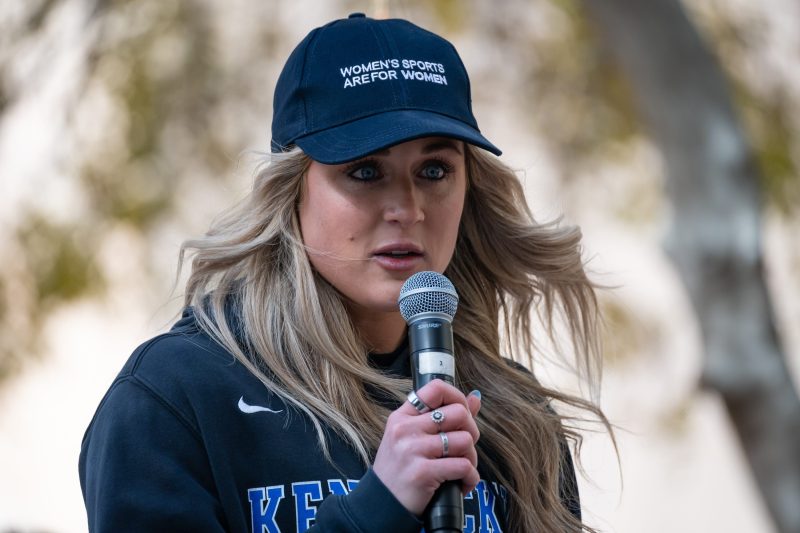
Riley Gaines federal lawsuit over transgender athletes can proceed
The lawsuit alleges the NCAA violated Title IX by allowing transgender athletes to compete in women’s sports.
Claims against the University System of Georgia and Georgia Tech were dismissed by the judge.
The NCAA has until early 2026 to conduct discovery on whether it is a federal funding recipient.
A lawsuit brought by former University of Kentucky swimmer Riley Gaines and nearly two dozen other athletes against the NCAA was largely dismissed on Thursday, however, a judge ruled the Title IX claims against the NCAA can proceed to the next stage, which is likely to be discovery.
The original class-action lawsuit was filed in March 2024, with Gaines and others alleging the NCAA and Georgia Tech knowingly violated Title IX, a five-decade-old federal mandate that guarantees equal opportunity for men and women in college athletics, thereby challenging the eligibility of transgender athletes to participate in competition.
The University System of Georgia and the Georgia Tech Athletic Association were the other original defendants in the case and were granted their motion to dismiss.
Georgia Tech was the host institution of the 2022 NCAA Division I Women’s Swimming and Diving Championships, in which Penn swimmer Lia Thomas, a transgender athlete, won the 500-yard freestyle title and tied for fifth in the 200-yard freestyle, with Gaines in the event.
U.S. District Judge Tiffany R. Johnson said in her ruling, obtained by USA TODAY Sports, that the issue of the lawsuit’s issues with Georgia and Georgia Tech was a moot point.
Johnson cited NCAA v. Tarkanian (1988) in dismissing the constitutional claims against the NCAA, stating the NCAA is a nonprofit organization and most public universities are under state control.
“Much like UNLV’s decision to follow the NCAA’s rules did not transform the NCAA’s rulemaking into state action,” Johnson wrote in her ruling, “all of the schools that participated in the 2022 Championships did not transform the NCAA policy on transgender athletes into state action.” She added the “Plaintiffs’ argument that the NCAA is a stand in for, effectively, every state in the country is illogical when the Supreme Court has already determined its involvement with one state was too attenuated to constitute state action.”
In January 2025, President Donald Trump issued Executive Order No. 14168 titled ‘Defending Women from Gender Ideology Extremism and Restoring Biological Truth to the Federal Government,’ and the next month, the NCAA put forth a new policy banning athletes who were born male from competing on women’s teams.
The case now proceeds to the defendant’s repeated claims that the NCAA is liable for violating Title IX, which may include discovery documents such as emails and other relevant correspondence.
‘College sports remain the premier stage for women’s sports in America, and the Association and its members will continue to promote Title IX, make unprecedented investments in women’s sports, and ensure fair competition in NCAA championships. The NCAA’s transgender participation policy aligns with the Trump administration’s order,’ the NCAA said in a statement.
The NCAA has until Oct. 9 to file its answer in the case, and has 90 days, ‘through and including January 7, 2026, to conduct limited discovery on the sole issue of whether the NCAA is a federal funding recipient through its partnership with the Department of Defense.’
